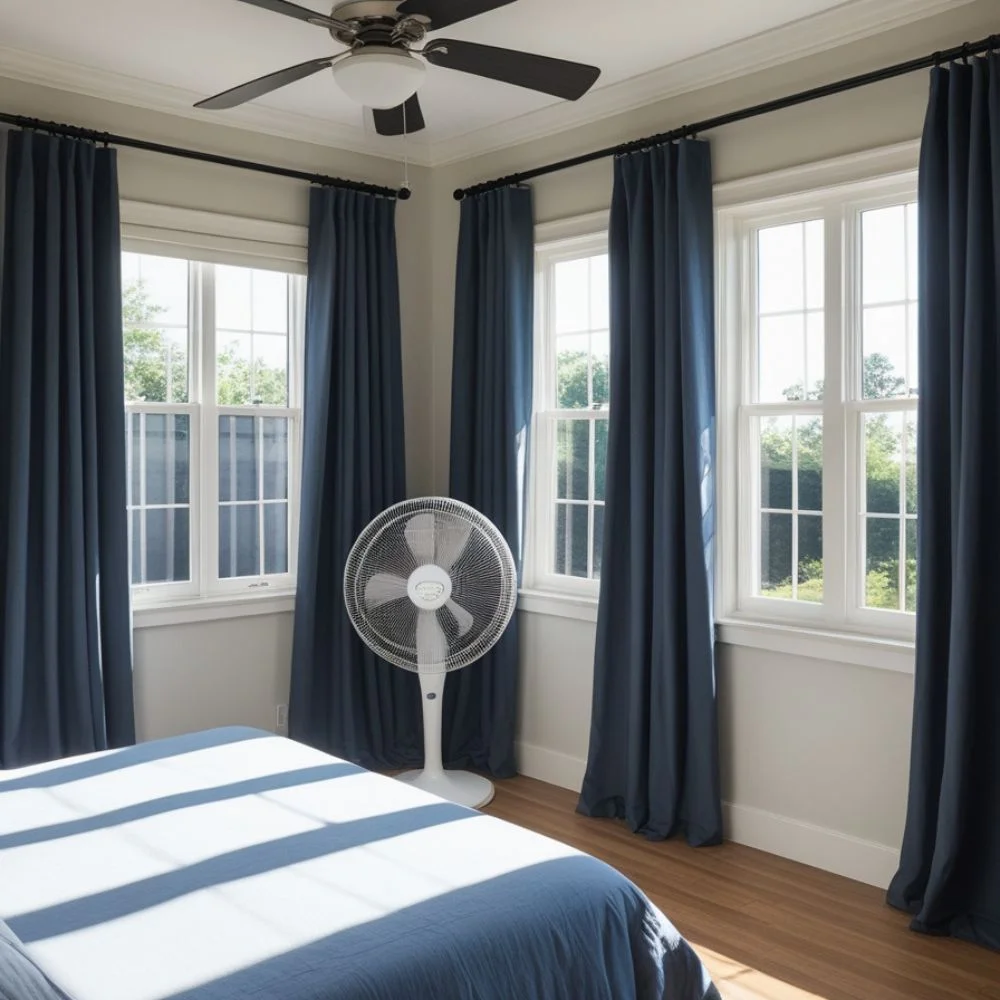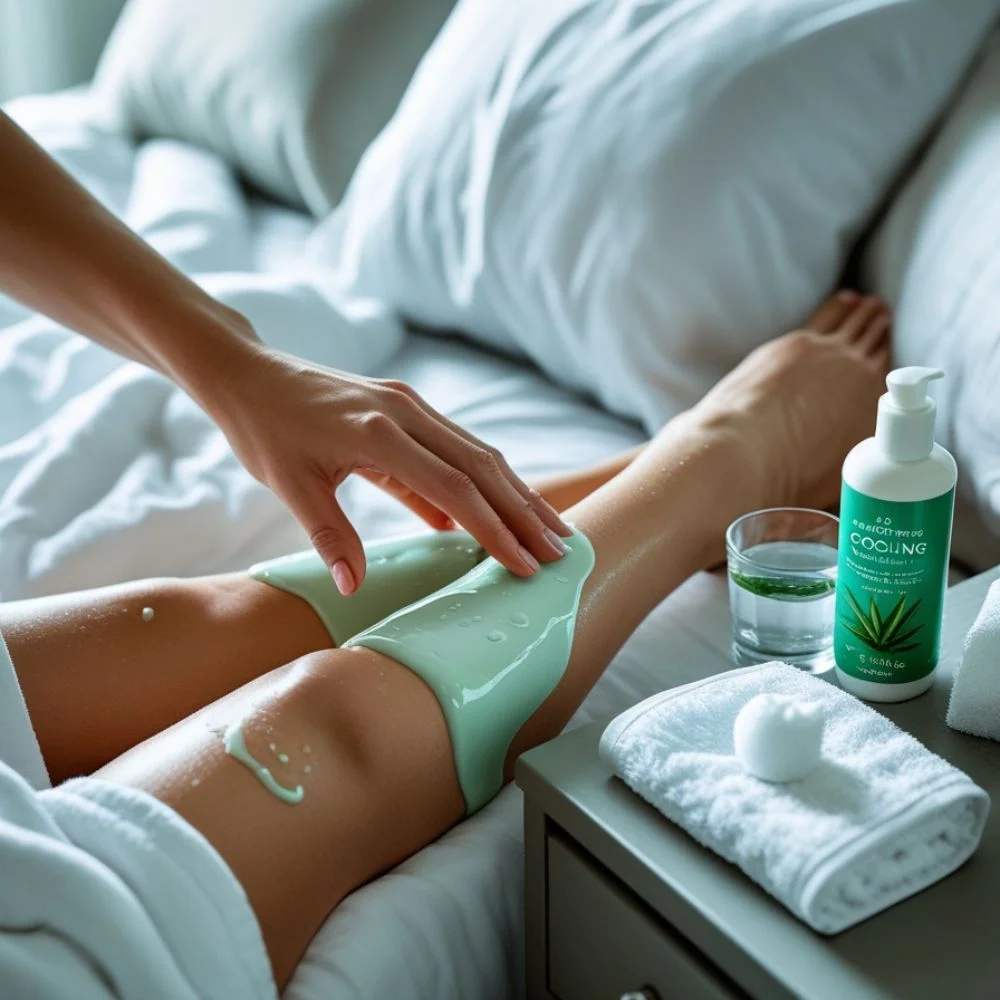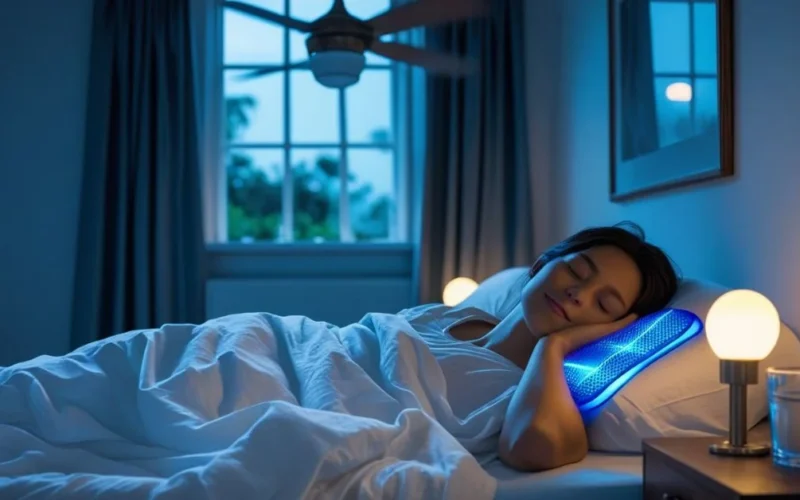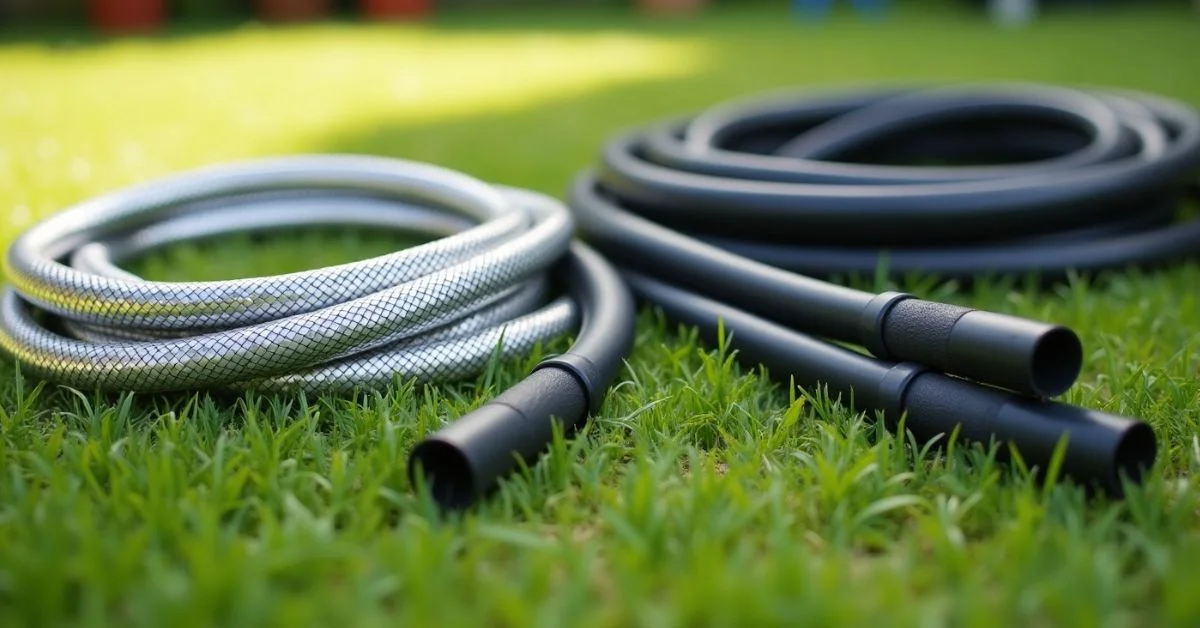Table of Contents
- Keep Your Bedroom Cool to Sleep Better in the Heat
- Choose Lightweight, Breathable Bedding
- Wear Cool and Comfortable Sleepwear
- Drink Water at the Right Time
- Cool Your Body Before You Go to Bed
- Eat a Light, Cooling Dinner
- Use Cooling Sleep Accessories
- Shift Your Sleep Routine When Needed
- Sleep Better Even on the Hottest Nights
When summer nights turn warm and sticky, getting restful sleep can feel impossible. To sleep better in the heat, your body needs a cooler environment to relax and fall asleep naturally. Without that cool-down, heat builds up and makes it harder to stay asleep. This leads to tossing, turning, and waking up feeling drained. The good news? You can sleep better in the heat by making small changes that cool your body, your room, and your bedtime routine. These daily habits help create the comfort your body needs to rest well, even on the hottest nights.
Keep Your Bedroom Cool to Sleep Better in the Heat
A hot room traps heat, which your body struggles to release during sleep. When your bedroom stays warm, especially during summer, it becomes harder to sleep well in the heat. Your body’s natural sleep process depends on a drop in core temperature. If your room is too hot, it blocks your body from cooling down, making it tough to relax and fall asleep.

To cool your room naturally:
- Close curtains and blinds during sunlight hours to block heat.
- Use blackout curtains or reflective shades to lower the room temperature.
- Open windows early morning or late evening to let in fresh air.
- Use ceiling or standing fans for airflow. Place one near a window to push out warm air.
Keeping your bedroom shaded and ventilated prevents heat buildup and makes falling asleep easier.
Choose Lightweight, Breathable Bedding
Heavy blankets and warm fabrics trap body heat and worsen night sweats. Thick bedding creates a layer that holds your body heat close, making it harder for you to stay cool while you sleep. As your body temperature rises, you’re more likely to sweat during the night, which leads to discomfort, broken sleep, and waking up feeling sticky or overheated.
The best fabrics for summer sleep include:
- Cotton: Soft, airy, and moisture-wicking.
- Bamboo: Naturally cool and gentle on skin.
- Linen: Absorbs moisture and allows airflow.
Avoid polyester or flannel sheets, as they retain heat. Use a cooling mattress pad if your mattress feels too warm.
Wear Cool and Comfortable Sleepwear
The clothes you wear at night impact your body’s ability to cool down. Your skin plays a major role in regulating your temperature, and what you wear either helps or blocks that process. During sleep, your body naturally tries to lower its temperature. If your clothes are too thick, tight, or made of synthetic fabrics, they can trap heat and moisture, making it harder for your body to breathe and stay cool.
In the summer, less is often more, which means choosing lightweight, loose-fitting sleepwear or even sleeping with minimal clothing if it helps you feel more comfortable. Breathable fabrics like cotton, bamboo, or moisture-wicking materials allow air to circulate around your skin and absorb sweat, helping your body cool off more efficiently.
Drink Water at the Right Time
Dehydration can quietly affect your sleep in several ways. When your body doesn’t have enough fluids, it struggles to cool itself. This can lead to night cramps, a dry mouth, and even overheating, all of which disturb your rest. Many people think drinking a lot of water at night will solve the problem, but drinking too much too late can lead to frequent bathroom trips, which interrupts deep sleep.
The key is to stay hydrated throughout the day, not just right before bedtime.
1. Drink Water Throughout the Day
Make it a habit to sip water steadily from morning to evening. This gives your body the fluids it needs to function well and stay cool at night, without overloading your bladder before sleep.
2. Sip a Small Glass Before Bed
Drink a small glass of cool water about an hour before bedtime. This helps you feel refreshed without making you get up in the middle of the night to use the bathroom.
3. Avoid Dehydrating Drinks in the Evening
Stay away from caffeinated drinks, sugary sodas, and alcohol in the evening. These cause your body to lose water and can lead to dehydration or restlessness during sleep.
4. Keep a Water Bottle Nearby
If you often wake up feeling dry or thirsty, keep a small bottle of water by your bed. Just take small sips if needed, don’t gulp, or it might wake you again later.
Cool Your Body Before You Go to Bed

Your body naturally lowers its temperature before sleep. Help it along with a relaxing and cooling bedtime routine.
Quick ways to cool your body at night:
- Take a lukewarm shower 30 minutes before sleeping.
- Apply a cold cloth or gel pack to your neck, feet, or wrists.
- Soak your feet in cool water for 10–15 minutes.
- Use peppermint body lotion or aloe vera gel for a fresh, cooling feel.
These habits signal your body that it’s time to relax and sleep, even when the air is warm.
Eat a Light, Cooling Dinner
Heavy meals raise your body temperature because your system works harder to digest large or greasy foods. This extra effort generates heat, making it harder to stay cool and fall asleep. Spicy or rich foods can also cause indigestion, bloating, or heartburn, which leads to discomfort at night. To avoid this, eat light and early, preferably 2 to 3 hours before bed.
Best dinner choices before bed:
- Fresh fruits like watermelon, cucumbers, or oranges.
- Green salads, steamed veggies, or chilled soups.
- Grilled or boiled lean proteins, like fish or chicken.
- Avoid spicy, fried, or rich foods, especially after 7 PM.
Use Cooling Sleep Accessories
When temperatures rise, even a well-ventilated room might not be enough. If you’re still struggling to sleep better in the heat, adding the right cooling accessories can make a big difference. These simple tools help regulate your body temperature, reduce sweating, and create a more comfortable sleep environment.
Top Cooling Accessories for Hot Nights:
- Cooling gel pillows: Stay cool for hours and prevent your head from overheating
- Breathable mattress toppers: Promote airflow and reduce trapped body heat
- Cold packs or cooling pads: Tuck under your pillow or sheets for quick relief
- Bed fans and under-the-sheet coolers: Help maintain a consistent surface temperature
Shift Your Sleep Routine When Needed
Sometimes, the heat is just too intense during certain hours. If you can, make slight changes to your sleep schedule.
Effective adjustments include:
- Go to bed later when the air cools down.
- Wake up earlier before the sun heats the room.
- Take short 15–20 minute naps if night sleep is disturbed.
Sleep Better Even on the Hottest Nights
Sleeping in the heat doesn’t have to be a struggle. With simple changes like choosing the right bedding, cooling your room ahead of time, wearing breathable sleepwear, and using smart fan tricks, you can beat the heat and rest well. Don’t ignore the effects of hydration, light meals, and airflow; they’re all key to feeling cool and calm at night.
By building a smart, cooling routine, you’ll fall asleep faster and feel more refreshed each morning. Stay consistent with these habits, and summer nights won’t stand in the way of your sleep again.








